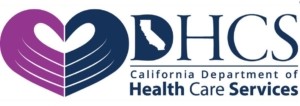The Importance of Aftercare and Alumni After Addiction Treatment
Table of Contents
Recovery from drug and alcohol addiction can take several weeks, months, years, or even a lifetime, in some cases. During that time, you will need access to a strong support network of friends, family, addiction treatment professionals, and peers in recovery who can hold you accountable and help you stay on track with your recovery. Aftercare and alumni programs play important, critical roles in your recovery after drug rehab and can help you achieve the fulfilling, rewarding, and healthy lifestyle you’ve always wanted.
Here’s a closer look at what happens in aftercare and alumni programs at drug and alcohol rehab centers like Dana Point Rehab Campus, and why these programs are important for your recovery.
What Is Aftercare?
Aftercare, also known as continuing care, is an outpatient treatment program you can participate in on a long-term basis after completing your drug detox or drug rehab program. The goal of aftercare is to help you work toward your life goals and prevent relapse as you continue with your recovery. Relapse rates for people treated for substance use disorders are between 40% and 60%, according to the National Institute on Drug Abuse. Aftercare can help you avoid becoming a statistic and works to keep you motivated and excited about your new sober lifestyle.
The services in your aftercare program may be similar to those you received in your addiction treatment program, but often require far less monitoring and supervision as you become more independent. Some patients may opt to go directly into an aftercare program instead of transitioning to an outpatient program following an inpatient or partial hospitalization program.
Why Is Aftercare Important After Addiction Treatment?
Aftercare helps you stay sober as you adjust to your new, addiction-free lifestyle outside of drug rehab. If you were suffering from addiction for a long time and relying on drugs and alcohol as coping methods, you may struggle with staying sober as you face common triggers such as stress and anxiety. Aftercare provides you with ongoing education, such as relapse prevention training that teaches you how to manage and overcome everyday triggers effectively.
Addiction patients who do not join an aftercare program following alcohol detox or rehab often face the risk of falling into the same patterns and routines they had before going to rehab. They may also lack strong supports in the form of friends and family, and resort to keeping old friends that encourage them to resume drug and alcohol use. Relapse tends to be more common among patients who fail to join an aftercare program, as they often lack the education they need to resist triggers and cope with everyday life as sober individuals.
Staying connected to those who understand your struggles with addiction and who are invested in your recovery helps you stay on track and reduces your risk for relapse. Aftercare programs can also help reduce feelings of loneliness and isolation among those in recovery. Drug users experience a stronger feeling of loneliness than non-drug users that can make them develop the sense of being different from the community, which increases their likelihood of engaging in risky behavior and using drugs, according to a study published in the International Journal of High Risk Behaviors and Addiction.
Staying connected to the recovery community through an aftercare program can make you feel as though you belong, and gives you a sense of purpose. You may even inspire and motivate the peers in your aftercare program to stay strong in their own journeys to recovery.
Which Therapies Are Offered in Aftercare?
The therapies offered in aftercare are highly similar to those you may have received in your outpatient drug rehab program. Individual and group therapy, 12-step facilitation therapy (such as Alcoholics Anonymous and Narcotics Anonymous), relapse prevention training, and medication management are some of the many therapies you may receive in aftercare. You may also be encouraged to join your rehab center’s alumni program, or stay in a sober living community for a period of time.
Right before your drug rehab program ends, your therapists and counselors may meet with you to set up an individualized aftercare plan. You may be assigned to a case manager who stays connected with you throughout aftercare and who provides you with the latest resources on long-term recovery from addiction.
What Is Alumni?
Alumni at drug rehab is a program that keeps you connected with staff and former patients — much like the alumni programs at colleges and universities. Alumni programs meet regularly throughout the year to keep you engaged and active in the recovery community, and help you maintain relationships with those who may have made an impact on your recovery while in drug rehab. Another goal of an alumni program is to reduce your risk of relapsing by preventing you from feeling lonely and isolated — much like that of an aftercare program.
Alumni meetings may consist of 12-step support group meetings and sober activities such as bowling, movie nights, and potluck dinners. These events allow you to network with other sober individuals, receive advice on creative ways to manage stress, and discuss common struggles and experiences related to addiction recovery.
Compared with aftercare programs, which usually only last for a period of time, alumni programs offer services for as long as needed, or indefinitely for those in recovery. Alumni programs can be highly fulfilling, especially if you get the opportunity to help others who may be newly sober and fresh out of rehab.
Why Is Alumni Important After Drug Rehab?
Alumni programs can help former patients stay motivated and positive about sobriety, and encourage social support and participation in sober activities. These groups can help you rebuild your identity and become more independent as you continue transitioning into life outside of rehab. Some alumni programs allow you to give back to the community in the form of volunteer work, which can be highly rewarding for those who may have once struggled themselves as they coped with addiction. Volunteer work can also help you develop new skills and learn how to practice gratitude.
Many rehab alumni groups stay connected through email, exclusive Facebook groups, and other online forums where you can plan and discuss outings and upcoming events. These online forums also provide you with a safe space in which to openly discuss your challenges as they relate to recovery. If you have recently completed a drug rehab program, ask your treatment center about its alumni program and how you can get started.









Leave a Reply
Want to join the discussion?Feel free to contribute!